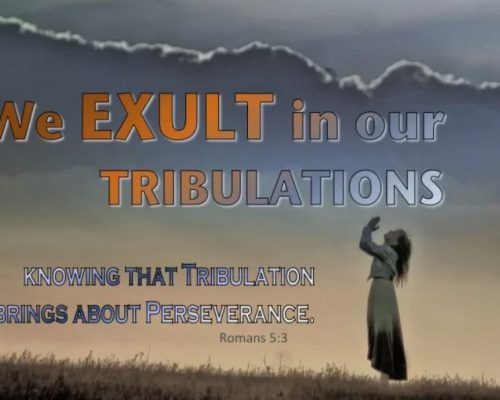Conquering Addiction–Part 1 of 2
This is a brief paper that will give some general direction to people who are struggling with various kinds of addictions and who would like to obtain victory over those addictions. Some overall guidelines are offered. Specific details for dealing with specific addictions can be found by doing Internet searches or searches in Christian bookstores.
There are many people who are enslaved to various addictions: alcohol, gambling, drugs, food and eating disorders, sex and pornography, and tobacco, to name a few. There are also “lesser” addictions that can also be devastating to God’s plan for your life–such as television addiction, video game addiction, computer addiction, etc.
How Addictions Get Started
Usually the beginnings of an addiction seem relatively “harmless.” People are just looking for some fun. Someone has suggested a way to find some pleasure–and, out of curiosity, we give it a try. We are just looking for a good time. Peer pressure can be a strong factor–especially when our conscience is whispering that the behavior might not be such a good idea.
From the beginning there is usually an unwillingness to deal with the reality of possible consequences that might come later on. Most addicts have an on-going problem with lying to themselves about consequences. They manage to disconnect the reality of destructive consequences that come later from their current behavior.
It would be helpful to take a moment and re-live the details of your life that led into the first experiments with the addictive behavior. Identify the personal weaknesses that got you started. (Dishonesty with yourself; too much concern with what others might think; too much desire to keep unhealthy friendships; lack of convictions; selfishness; putting a desire for personal excitement above needs of others, an attempt to hide from God, etc.)
Falling
When they first engage in a behavior that could become addictive, many people experience a nervousness and excitement associated with doing something that is “forbidden.” The fact that it is a bit “risky” adds to the thrill for many.
Afterward there may be a sense of “That wasn’t so bad. In fact it was fun. I don’t think there’s any real harm in it. Those folks that warn against it are just alarmists.”
And, for most addictions, there are no immediate horrific and obvious consequences.
By the way, that is true for most sins. Consequences often come later–on down the road. It’s not hard to train a child to not stick his hand in the fire. The consequences are immediate and severe! But it can be very hard to train a child to eat properly or get a proper amount of sleep because the consequences are more removed from the behavior. One purpose of God’s Word is to help us realize and internalize the long range consequences of our choice to sin.
But since the consequences tend to be long range, the destructive behavior tends to continue.
The self-deception continues. The developing addict thinks, “I know I can handle this. I can quit anytime I want to quit. This is no big deal.”
But the behavior brings an immediate sense of pleasure–so it is continued and repeated more and more frequently. It becomes a part of our routine.
At some point the behavior becomes a habit–a habit that is not so easily broken. Even though we are probably still convinced that we can “leave it at any time.”
If others have started to notice the problem, and have tried to communicate the problem to us, a really good question is, “Am I willing (Note the word “willing.” We would likely laugh at the idea that we might not be “able.”)–Am I willing to prove that it is not a problem by giving it up–not for just a few days or weeks–but giving it up long term?
Trapped
There comes a time when the habit has become a “stronghold” (a Bible word: 2 Corinthians 10:4). It has a grip on us. It has a claim on our lives. If we were honest, we would recognize that it would not be at all easy to quit now. But we are usually not that honest. We continue to lie to ourselves (and to others).
But down inside, there may be an awakening awareness that “I really can’t do without this now. I’ve got to have it.”
We can probably still convince ourselves that it won’t lead to disaster in our case. We think we can quit later. We think we won’t let it get totally out of control.
Others can now see that we are trapped in an addiction. Even though we may thing they are wrong.
Again, if someone asks us to “give it up” to PROVE that it really is not an addiction, we refuse, thinking that they are just being stupid.
Eventually it begins to affect our health, our job performance (including, sometimes, our ability to keep a job), and our family in a very negative way.
Of course, it its final stages it leads to loss of family, financial ruin, complete destruction and death.
Pretty Grim–But There Is Hope!
Addictions are horrific. Yet there are people all around us who are drowning in them. Most of us know personally people who have lost everything, including their lives, because of addictions. And many who finally realize that they are enslaved to addiction lose all hope. BUT?
God is a God Who gives hope to the hopeless. If we are willing to live our lives His way, He can, He has, and He will deliver even the most “hopeless” addicts.
Don’t read that to mean that it will be easy. It usually is not easy. It means radical life changes. It means making many very difficult decisions.
We will consider all that in the next post.



-
Tagged Fiery Trials, Romans, suffering, Trials, tribulation